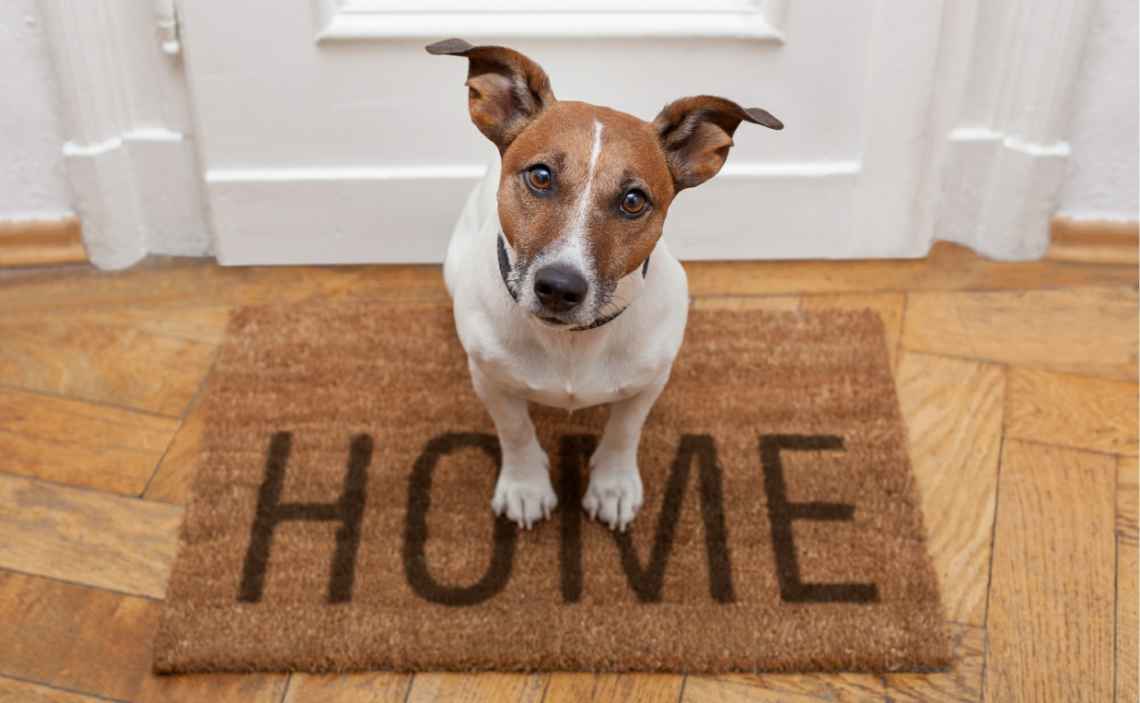
Here at Canine Campus we know how important your dog is to you – after all, he or she is one of the family! Unfortunately, it can be challenging to rent property when you have a dog. Sadly, housing issues are the main reason dogs are surrendered to animal shelters.
Why It’s Hard to Find Dog-Friendly Rental Housing
Many property owners are understandably nervous about renting to dog owners. They are concerned about damage to their property or disturbing the neighbors. As it turns out, most tenants with dogs take good care of them, are respectful of rental property and ensure their dogs are not a nuisance.
Accepting All Types of Dogs is Good Business
Rental housing that welcomes all dogs, regardless of breed or size, is favorable to families, saves thousands of dog lives and is beneficial to landlords too. Since 72 percent of renters have dogs, landlords that accept all types of dogs increase their chances of finding good tenants because they are opening the applicant pool. Good tenants stay longer, keeping turnover costs low. That means lower vacancies and lower administrative costs. These advantages come with no downsides – policies imposing breed and weight restrictions are based on myths and don’t improve resident safety or increase property values. The bottom line is – policies welcoming all dogs makes good business sense!

Dog Breed Restrictions
Some properties have dog breed restrictions. These are breeds considered rowdy, unmanageable or dangerous. These restrictions are enforced to protect people from potential dog attacks and property damage. It can cost insurance companies a lot of money if a dog bites or injures someone or damages property. For this reason, many insurance companies refuse to insure properties unless dog breed restrictions are in place.
Here are the most common dog breed restrictions:
- American Pit Bulls
- Rottweilers
- Akitas
- Cane Corsos
- Presa Canarios
- Bull Mastiffs
- Staffordshire Terriers
- Dobermans
- German Shepherds
- Boxers
- Malamutes
- Huskies
- Dalmatians
- Chow Chows
- Fila Brasileiros
- Wolf hybrids
14 Tips to Increase Your Chances of Finding Dog-Friendly Housing
Finding rental housing that accepts all dogs, regardless of size or breed, can be difficult. It can be even harder if you have more than one pet. Increase your chances of finding a good home with these tips:
1. Allow as much time as possible to search.
2. Use online resources to research dog-friendly listings. Here are a few to consider:
- Abodo
- Apartment List
- CampusCribz (college housing)
- Craigslist
- DoorSteps
- MyNewPlace
- PadMapper
- People with Pets
- Rent.com
- Rentberry
- RentLingo
- Zillow
3. Reach out to friends, family and social networking sites to find connections and opportunities.
4. Create a “resume” for your dog. Include a photo of your dog, favorite activities, certification and even a short adoption story (including your dog’s socialization level such as a regular at dog daycare or the dog park.) You can even ask for a reference letter from your daycare and/or boarding facility which specifies your dog’s behavior in a pack setting, around staff members and other dog owners. Include a letter of reference from your previous landlord, written proof that your dog has completed a training class, and documentation from your vet that your dog is spayed or neutered and current on vaccines. This sample dog resume (PDF) may spark ideas.

5. Invite potential landlords to meet your pet.
6. Be prepared and willing to pay a reasonable extra amount in rent or pay a refundable pet deposit.
7. If you find a property you are seriously interested in, ask if the landlord would reconsider. Some landlords will make exceptions, especially if they are a pet lover themselves. It is worth asking in a friendly way over the phone or in person.
8. When signing a lease make sure it doesn’t say “no pets allowed”, even if the landlord, manager or realtor says it’s OK. The only words that matter is the language in the lease. If the lease contains “no pets allowed” and the landlord has agreed to make an exception for you, make sure “no pets allowed” is crossed out and language approving your pet is added and both you and the landlord initial the changes.

9. Pet deposits or monthly fees (if any) should be specified in writing in the lease. Prior to signing, you can discuss and negotiate all fees.
10. If a lease does not mention pets at all, typically that means you are allowed to have pets. Some communities and public housing authorities ban certain breeds, so be sure to check to see if any laws or rules are in effect.
11. Contracts, like leases, cannot be changed unless both parties agree, unless there is language in the contract that allows the change.
12. If the landlord wants to change the lease, you may have legal protections. In this case, it’s important to find legal resources to assist you.

13. If your dog meets the legal qualifications of an assistance animal, you may have a legal right to keep your dog. Under the Fair Housing Act, housing providers are obligated to permit, as a reasonable accommodation, the use of animals that work, provide assistance or perform tasks that benefit people with a disability or provide emotional support to alleviate a symptom or effect of a disability. An Emotional Support Animal (ESA) can be beneficial to people suffering from:
- Learning disabilities
- Attention Deficit Disorder (ADD)
- Anxiety disorders
- Motor skills disorders
- Post Traumatic Stress Disorder (PTSD)
- Intellectual disorders
- Phobias
If you qualify for an Emotional Support Animal letter from a licensed mental health professional, your landlord cannot deny you, even if they are a no-pet property. Get more information about Emotional Support Animals
14. If you are being faced with a possible eviction or loss of your dog, seek help before you do anything drastic. There may be legal resources that can help you. Here are some local resources for you to explore:

While it may take some time and be challenging to find a rental that will accept your dog, don’t despair! There are many properties that will rent to pet owners if you can show you are responsible and will care for their property.
Have you had success finding a rental property as a dog owner, especially a large dog, multiple dogs or a breed that is often discriminated against? Please share what worked for you with the rest of the Canine Campus community in the comments below.


 Top 8 Questions to Ask Before Adopting a Shelter Dog
Top 8 Questions to Ask Before Adopting a Shelter Dog Does Your Dog Have Back to School Separation Anxiety?
Does Your Dog Have Back to School Separation Anxiety? Living With a Large Breed Dog
Living With a Large Breed Dog Should You Feed Your Puppy Adult Dog Food?
Should You Feed Your Puppy Adult Dog Food? New Puppy Checklist: Supplies You Need When Bringing a Puppy Home
New Puppy Checklist: Supplies You Need When Bringing a Puppy Home






Leave a Reply